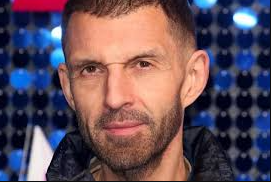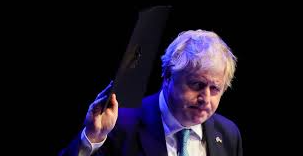From Australian soap operas to major Hollywood productions, the ‘Sharp Objects’ star reflects on her journey, the struggles of growing up in the industry, and why she still lands teenage roles at 26.
Eliza Scanlen didn’t start her career as a child actor, but she was barely an adult when fame found her. At just 18, she gained recognition for her unsettling performance as Amy Adams’ troubled younger sister in HBO’s Sharp Objects. Now 26, she looks back and admits she wasn’t fully prepared for the sudden attention.
“It all happened so fast,” Scanlen reflects. “When you get a big break, there’s this pressure to keep the momentum going, and I found it overwhelming. If I had been older, I might have felt more confident.”
Despite starring in major projects like Little Women, Old, and BBC’s upcoming Dope Girls, Scanlen remains unconcerned with Hollywood’s trappings. When we meet, she’s dressed casually in a denim button-up and a puffer jacket, embracing an unassuming lifestyle in London rather than Los Angeles.
Born and raised in Sydney alongside her twin sister and older brother, Scanlen had no family connections to the film industry. Yet, after attending acting classes at NIDA, she landed a role in the soap opera Home and Away at 17. One scene required her to kiss another actor—an experience that nearly made her quit. “I freaked out,” she laughs. “Now, I judge roles by how much they scare me. The more terrifying, the more rewarding.”
That unpredictability has shaped her career. Directors have capitalised on her ability to appear both innocent and menacing—something she showcased in Sharp Objects, and again in The Importance of Being Earnest on stage. In The Starling Girl, she played a teenager caught in a complex relationship with an older pastor.
Her latest role in Dope Girls is no different. The series, set in 1920s London, follows a woman aspiring to run a nightclub. Scanlen plays Violet, one of Britain’s first female police officers, who infiltrates the city’s underworld. “It’s been compared to Peaky Blinders,” she says. “The northern accent was my biggest challenge yet.”
Though she often immerses herself in research, Scanlen is learning to trust her instincts. “Sometimes, over-preparing can be stifling,” she admits. As Violet, she leans into the confidence and ruthlessness she’s rarely explored on screen. “I’m at a strange point in my career where I’m 26 but still being cast as 17-year-old girls who’ve never been kissed,” she muses. “I love coming-of-age stories, but they’re starting to feel distant.”
Her breakout role in Sharp Objects was a whirlwind. She recalls arriving at the audition hoarse from post-exam celebrations in Australia. “Jean-Marc [Vallée] commented on my voice, and I just played it off as character immersion,” she grins. The show’s premiere was overwhelming, coinciding with news that she was in talks for Little Women. “I wasn’t prepared for the scale of it,” she admits.
Playing Beth March in Greta Gerwig’s Little Women introduced her to co-star Saoirse Ronan, who instinctively took her under her wing. “Saoirse told her mum, ‘I need to look out for this girl,’” Scanlen recalls. “And she did. She understood how daunting the industry can be.” The two remain close, as does Scanlen’s friendship with fellow actress Thomasin McKenzie.
After Little Women, Scanlen felt homesick. When she was offered a role in the indie film Babyteeth, she jumped at the chance. “I just wanted to go home,” she says. She shaved her head for the role, a decision she found liberating. “We hide behind our hair. Without it, there’s nowhere to hide.” It also changed how casting directors saw her. “People tend to typecast based on looks rather than performance,” she notes.
Returning to Hollywood, she starred in Netflix’s The Devil All the Time, feeling more self-assured after her experience on Little Women. She laughs at the rumours surrounding Robert Pattinson’s supposed method acting. “He wasn’t method at all—we were always laughing between takes.”
However, she agrees with Natalie Portman’s view that method acting is often a privilege afforded more to men than women. “Women aren’t given the same leeway,” she says. As someone who has experienced both ends of a film set hierarchy, she acknowledges the responsibility that comes with power. “When you see something wrong, you need the confidence to speak up,” she says. “I’ve done it before, and I’m learning to do it in the moment.”
Scanlen’s journey from Australian soaps to Hollywood prestige has been anything but conventional, but she’s embracing the uncertainty. “The fear is what makes it exciting,” she says. And by the looks of it, she’s only just getting started.


















